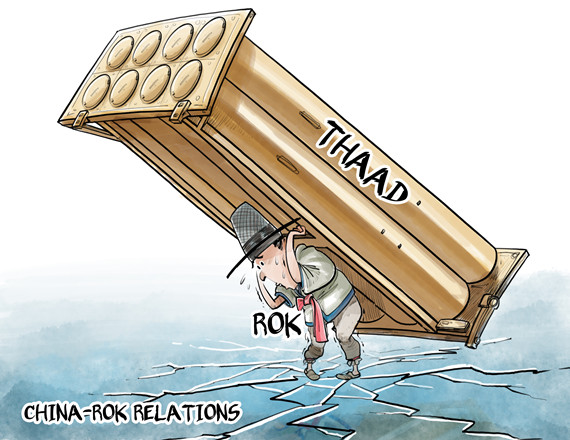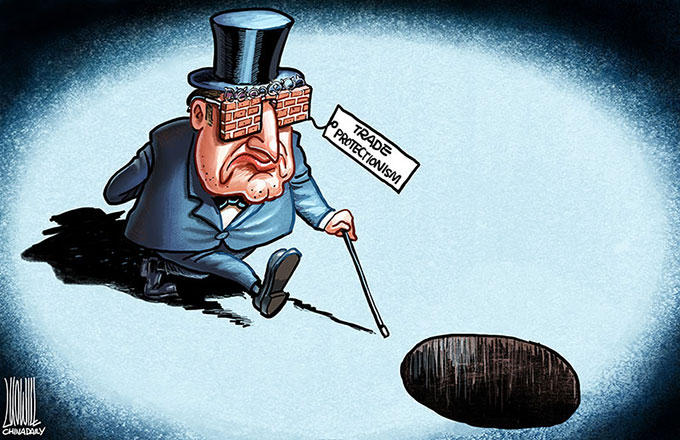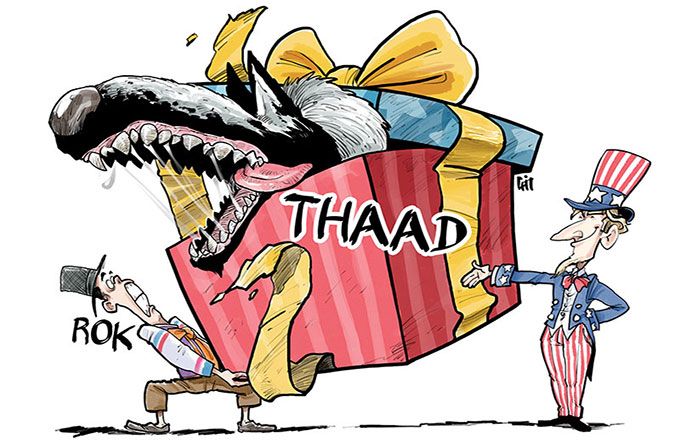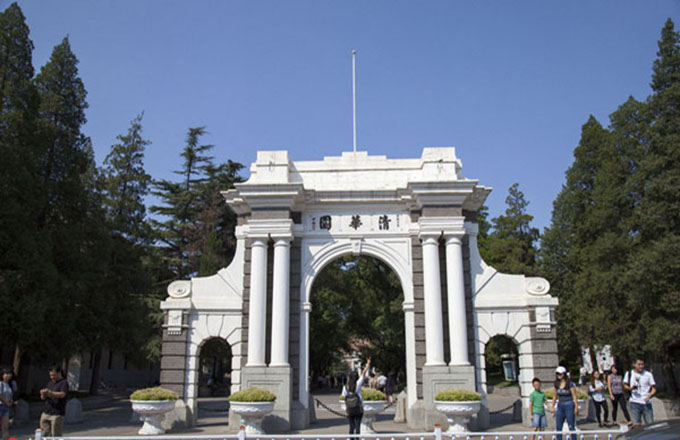It's time Pyongyang saw reason
Of course, the "pivot to Asia" policy of the US has played a role in the current plight of the DPRK. In 2011, the US shifted its focus from the Middle East and Southwest Asia to the Asia-Pacific region, strengthening its alliance with the ROK and Japan. After more than one year's efforts, the US' rebalancing policy in the Asia-Pacific region, though widely criticized, is unfolding with its antenna stretching toward Beijing and Pyongyang.
Washington's tolerance level with Pyongyang has declined after Barack Obama began his second term as US president. During his first term, Obama had adopted the so-called policy of strategic patience with an open mind, and promised to increase contacts and alliances in the region while waiting for the DPRK to return to the table to resolve the Peninsula nuclear issue. But there is no guarantee that the Nobel Peace Prize winner will not use non-peaceful means to deal with the DPRK during his second term in office.
Besides, an increasing number of Americans today see the DPRK as a threat to the US. A recent poll shows that 41 percent Americans consider the DPRK a direct threat. It is widely believed that Pyongyang will conduct nuclear and missile tests alternately this year. It could, for example, test-fire a Musudan missile, which has a range of 3,500 kilometers and is designed to reach the US' crucial Asia-Pacific military base in Guam.
Therefore, relevant countries should make concerted efforts to de-escalate tensions on the Peninsula immediately. Contacts and dialogue, even through non-official channels, should be continued to prevent Pyongyang from taking measures that could lead to a war. The urgent need is to maintain restraint.
All the measures the DPRK has taken, including nuclear and missile tests and issuing of alerts to foreign envoys in Pyongyang, are part of its asymmetric strategy. If its hostile rhetoric is answered in equal terms, the situation will spiral out of control.
The DPRK has been using threats to unite people at home and as a card to force relevant countries to agree to at least some of its conditions. But now it seems to have exhausted all the means at its disposal to elicit any "positive" response from the outside world. So it is time relevant countries, especially China, made their bottom-line clear: Dialogue and cooperation, not nuclear tests, are the way to maintain peace and stability on the Korean Peninsula and in Northeast Asia.
War is the failure of politics. Hence, relevant countries have to make serious and sincere efforts to ensure that politics does not fail in its endeavor to ease tensions and restore permanent peace on the Peninsula.
The author is a professor at Northeast Asian Studies Academy of Jilin University.
(China Daily 04/18/2013 page9)
- China honors UN resolution on DPRK
- DPRK denies ROK businessmen's entry to Kaesong
- ROK urges DPRK to make sensible choice
- China: No military buildup on border with DPRK
- DPRK takes a break to celebrate birthday of founder Kim Il-sung
- DPRK vows 'military demonstration' to ROK hostility
- Kerry: talks possible if DPRK works for peace
- DPRK ready to launch missiles: ROK
- Kerry says US ready to 'reach out' to DPRK





















